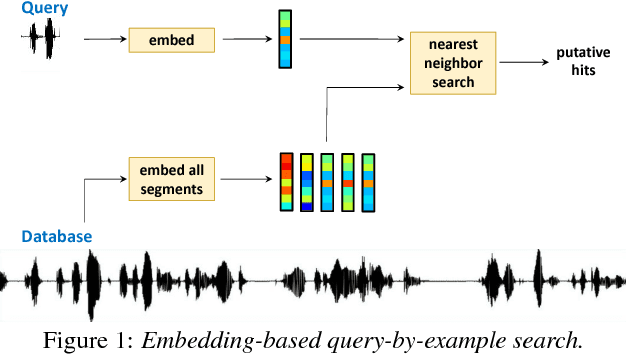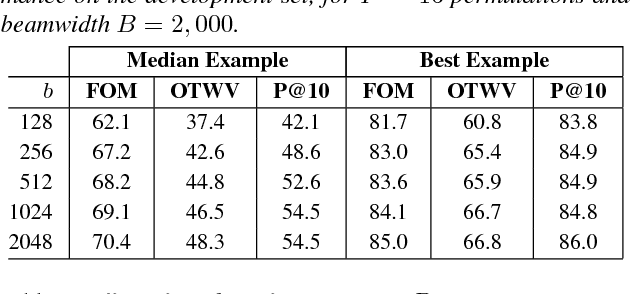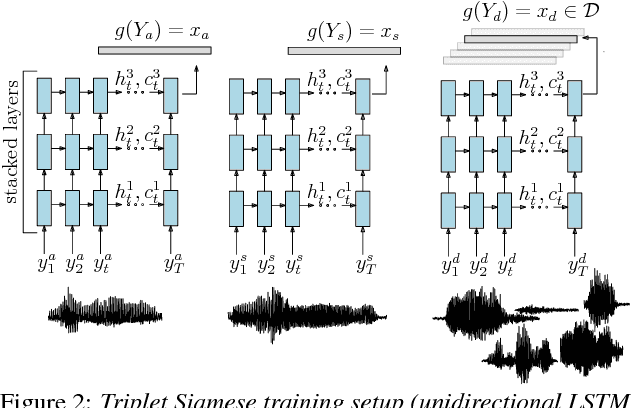Query-by-Example Search with Discriminative Neural Acoustic Word Embeddings
Paper and Code
Jun 12, 2017



Query-by-example search often uses dynamic time warping (DTW) for comparing queries and proposed matching segments. Recent work has shown that comparing speech segments by representing them as fixed-dimensional vectors --- acoustic word embeddings --- and measuring their vector distance (e.g., cosine distance) can discriminate between words more accurately than DTW-based approaches. We consider an approach to query-by-example search that embeds both the query and database segments according to a neural model, followed by nearest-neighbor search to find the matching segments. Earlier work on embedding-based query-by-example, using template-based acoustic word embeddings, achieved competitive performance. We find that our embeddings, based on recurrent neural networks trained to optimize word discrimination, achieve substantial improvements in performance and run-time efficiency over the previous approaches.
 Add to Chrome
Add to Chrome Add to Firefox
Add to Firefox Add to Edge
Add to Edge